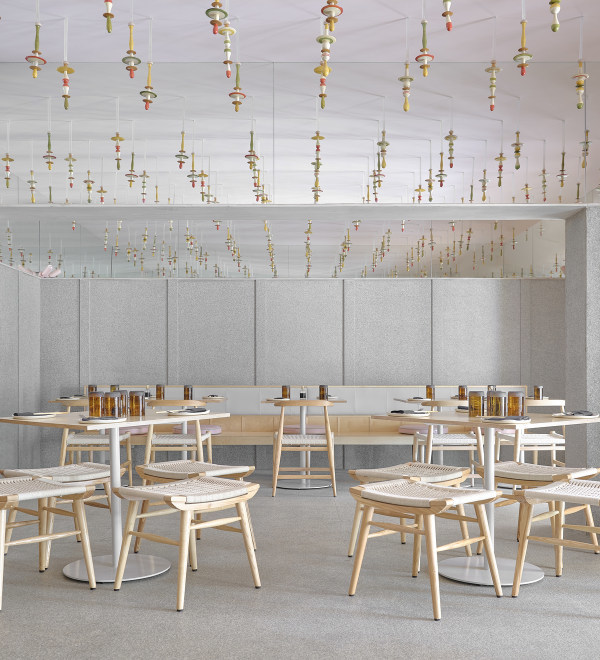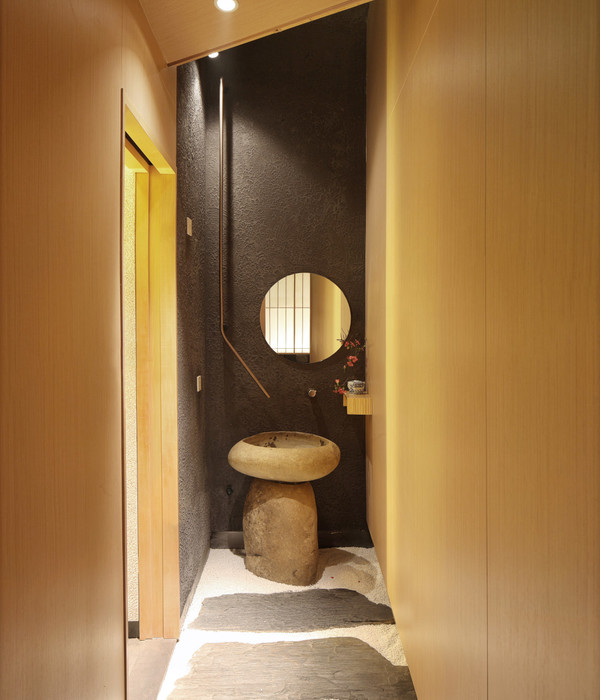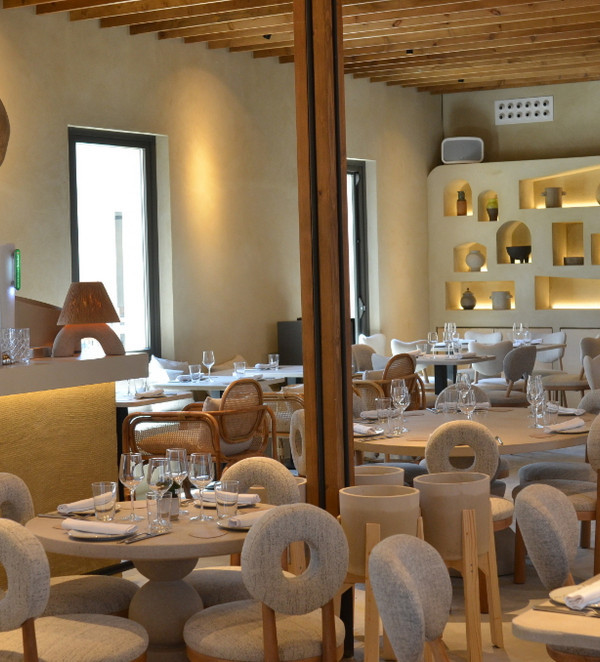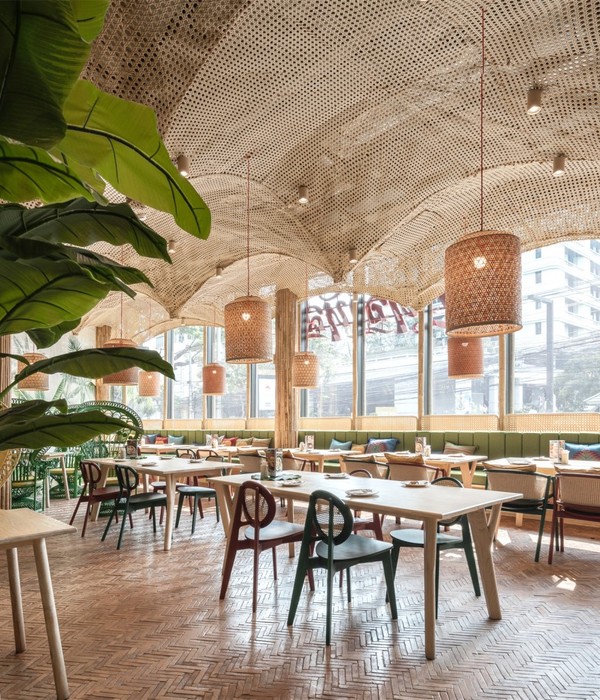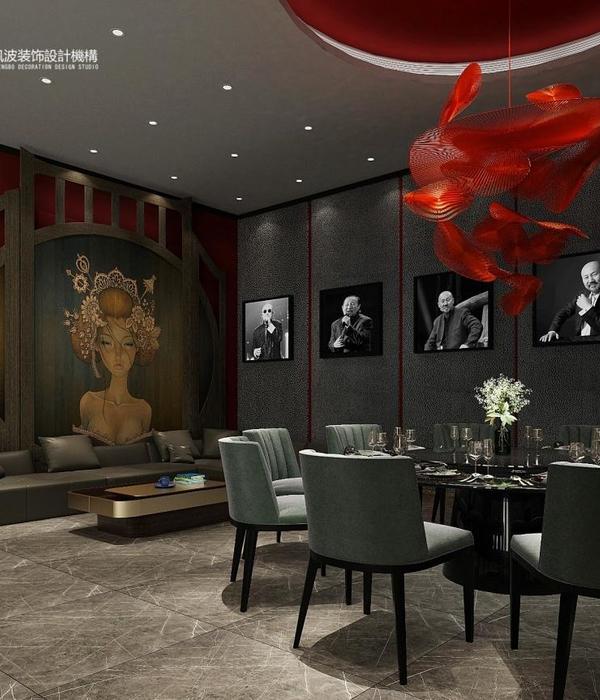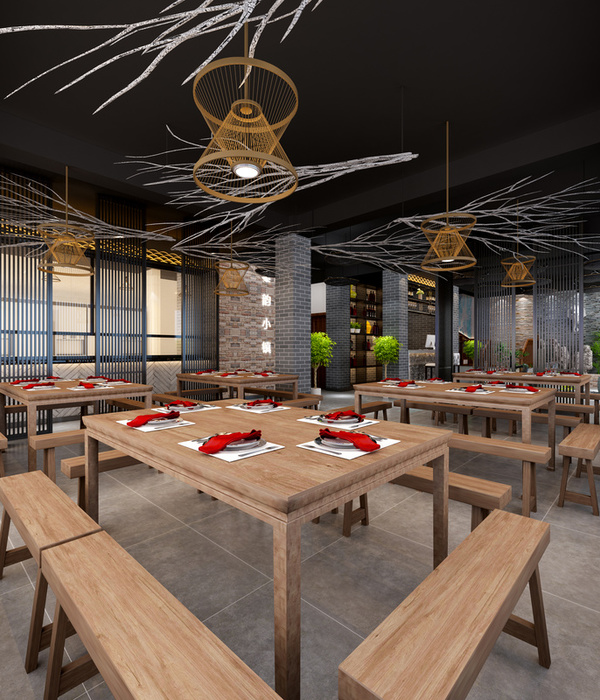Roister, a restaurant opened in Porto Alegre, has a strong personality and a well grounded concept of New American Cuisine. Also known as contemporary American cuisine, the NAC is a reflection of a tradition in which chefs unite local ingredients with foreign techniques to explore and experience flavors that challenge categorization. Similarly, in architecture, it was sought to develop a space of aesthetics and democratic language free of labels to speak to a public willing to take part in new experiences.
Located in a established and important area of the city, the store with a built area of 480m2, stands out due to its visibility. The architectural concept used this premise, the appreciation of the corner and the use of transparency on the façade explore the relationship between the restaurant and its surroundings, arousing interest in the public and inviting him to enter. The internal façade of the mall is in natural iron sheet and is accessed through a narrow passage lined in wood. This makes the customer aware of their size, thereby accentuating the architecture which is enhanced by the high ceiling on entering the restaurant.
The design of the project starts with the optimization of the zoning and flow of the service. The wall with 20 beer taps is the center and heart of the restaurant, it separates the service from the tables, allowing the movement of employees and customers around it. On the ground floor the kitchen, service access, barrel, wine cellars and toilets are behind the wall, while the bar with a wide variety of seat types are in front. On the upper floor is the warehouse, administration, locker rooms, refrigerated chambers and the machine room connected by a technical walkway.
In the bar, demolition bricks with a 105-year history are seated under and over a large concrete beam, which together construct the wall and highlight the volume of iron sheet of the taps and the menu of beers in aluminum profile. With almost 16 meters in length, the balcony in "louro freijó" wood embraces the brick wall and the nearby concrete pillar, unifying with character the set and allowing the interaction between the clients and the operation of the bar. The central luminaire chandelier is a pyramidal mesh made of iron and suspended by tie rods, which, positioned on the axis of the brick wall, attracts the eyes of the public and composes this important set.
In the table room, the variety in types of seats provides a less pretentious experience. The central set of "L" sofas demarcates and divides the environments, distributing more than 140 seats in different configurations around it. The 100m2 area of the deck is a natural extension of the urban space perceived inside the restaurant by the permeability of the façade. The retractable awning cover allows the possibility to use 100 seats along the solid wood bench on the perimeter of the deck.
The floor is sanded concrete intended to withstand great flow; the metal structure of the mezzanine is finished in natural iron. On the lining and external walls of the mezzanine acoustic coating was used; the infrastructure is apparent and is painted black. Glass, wood, brick, concrete and iron in their natural form reinforce the logic of gastronomy - raw simplified cuisine and architecture, give personality and strengthen the identity of the first Roister in the city.
{{item.text_origin}}


